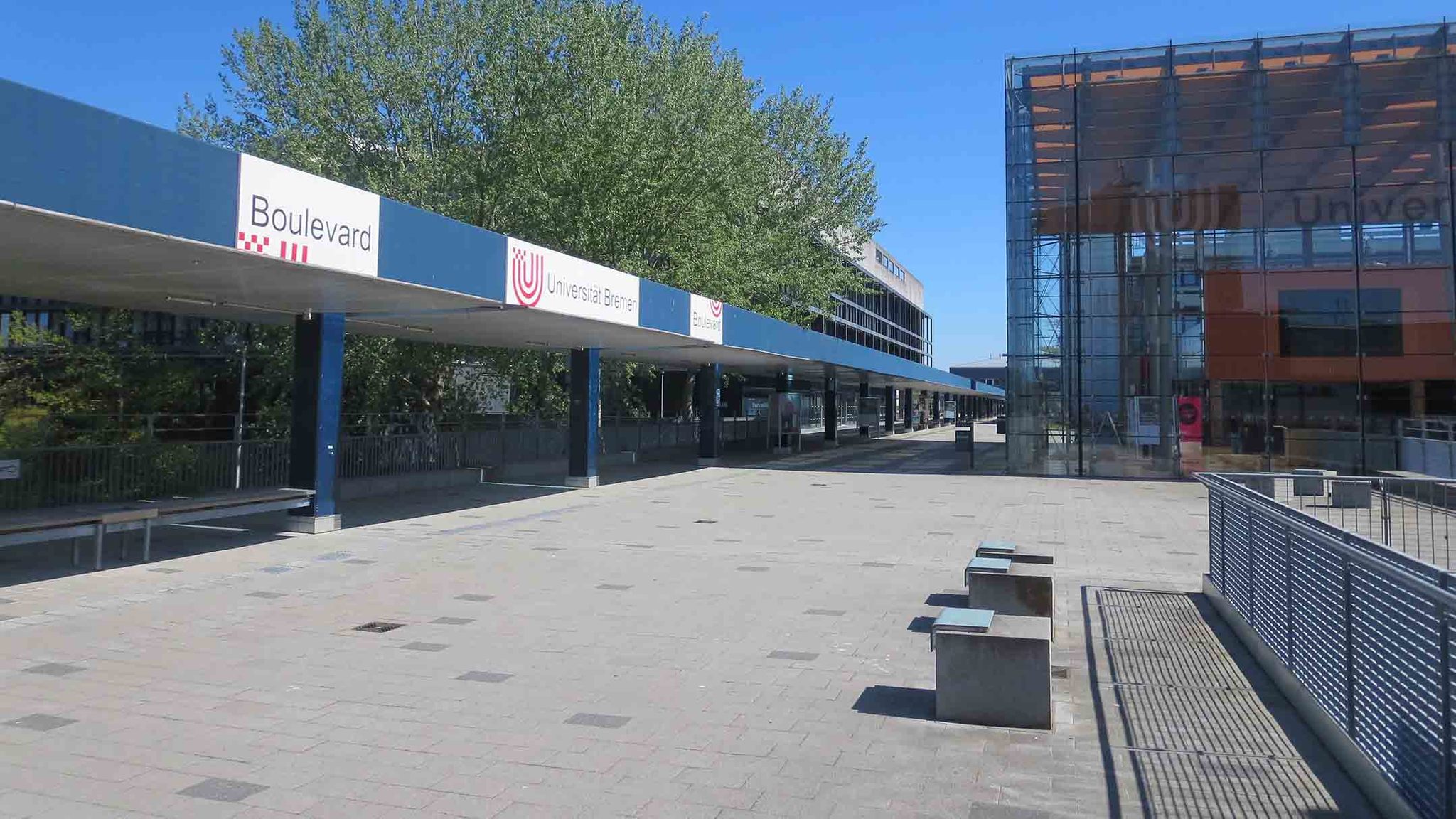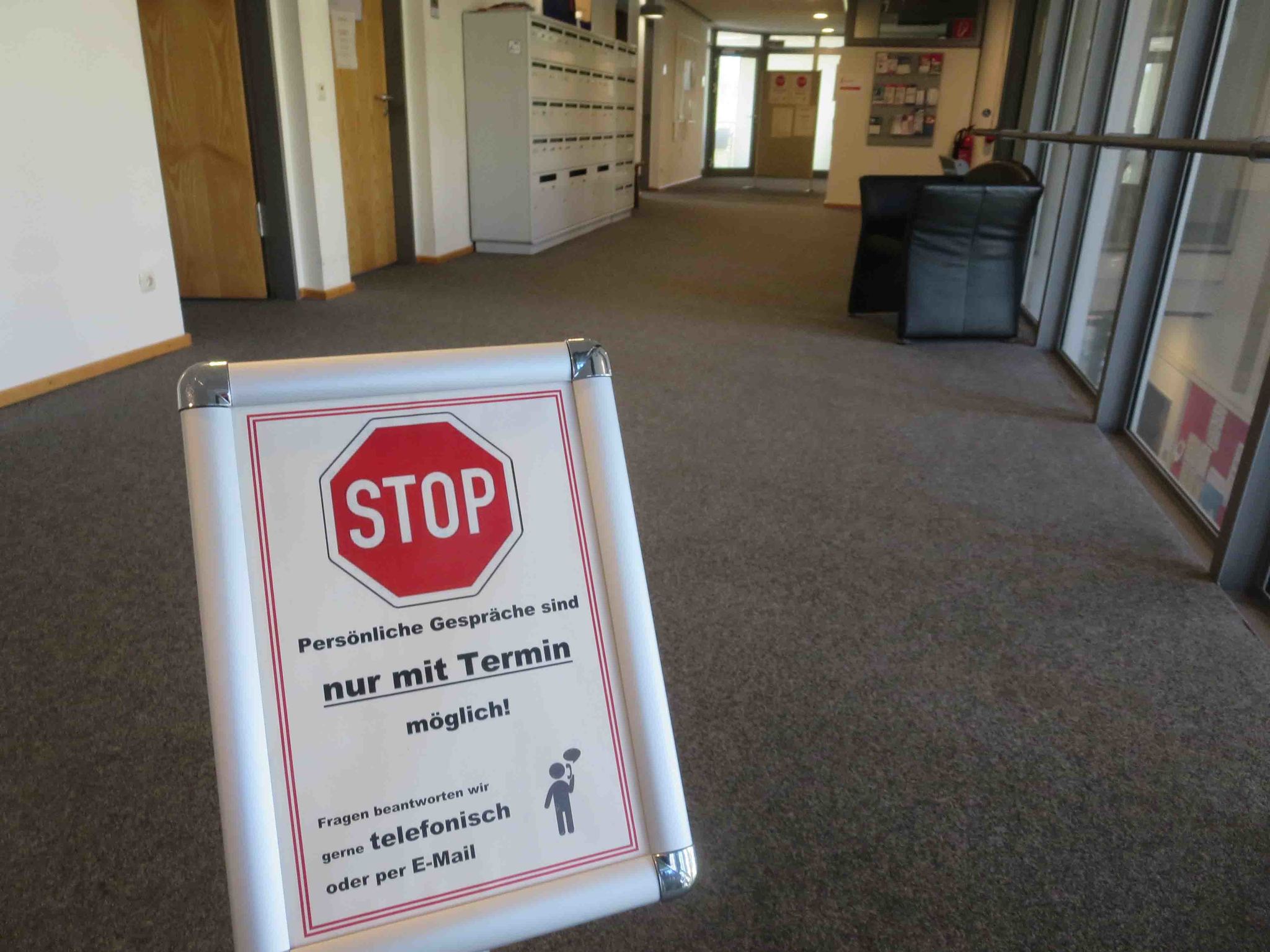
© Meike Mossig / Universität Bremen
“We are giving our all”
How the university administration is dealing with the challenges that emergency operation mode brings. We asked them and can give you an insight.
Since March 23, the University of Bremen has been in emergency operation mode. Distancing and hygiene regulations are the top priority so that the spreading of the coronavirus is curbed. That is a challenge for the university administration. Not all of their tasks can be completed from home and some of the teams are significantly smaller, as many have special leave due to the daycare and school closures or because they belong to risk groups. Unconventional solutions are needed. But they also offer chances.
Those who currently have an issue to clarify with the Central Examination Office (ZPA), have to reckon with waiting time. “We are giving our all to satisfy the many enquiries,” emphasizes Tina Hoffmann, head of the ZPA. “Because our staff numbers have been greatly reduced, everything is a little slower and we ask for patience.” A third of Hoffmann’s 21 staff members have had special leave since March 23, so that that they can care for young children. The rest of her team are working as team A and team B for half the time on campus and the other half from home so that the potential risk of infection is kept as low as possible. Normally, the ZPA offer personal office hours but this is unthinkable at the moment. Despite all this, the staff still try to answer the most pressing enquiries each day. “The whole team is really working well,” says Hoffmann. “I am very grateful for that.”
Chance for Digitalization
The application timeframe for the practical teacher training period will close at the end of April, for example. “There were a great deal of enquiries about this,” according to Hoffmann. The students’ distress and uncertainty were particularly present at the point in March when all examinations were cancelled due to the corona pandemic. Hoffmann and her team were hardly able to answer all of the questions. “We also function as a type of telephone helpline.” Everyone was able to breathe easy again when the Rapid Decision Documents from the university president were published and examination dates, for example the submission deadlines for bachelor’s and master’s theses, were postponed. “We now need to create new paths little by little,” according to Hoffmann. “We are currently working on a concept of how we can offer personal office hours once more under adherence to the distancing and hygiene regulations.” The ZPA head sees chances within the crisis. She could further promote digitalization of administration. “We are currently accepting everything digitally.” That was inconceivable prior to the corona crisis.

© Meike Mossig / Universität Bremen
No-one Should Become Unemployed
Due to the fact that many staff members have taken special leave in order to look after their small children, the head of the Administrative Department for Human Resources, Simone Blaschke, has at some times only had 30 percent of her team working in the past weeks. It is nearly impossible to work from home in this area, as the majority of the department’s tasks are carried out with the PuMa (staff administration and management) data processing tool. The tool is only allowed to be used at the university for security reasons. This is based on a decision by the Bremen Senatorial Office for Finance. The same applies for the SAP system used at the university, with which invoices can be paid, for example. Additionally, it is unthinkable during the pandemic that sensitive personal data or staff files are processed from home. “Staff can continue to place their trust in personal data protection, even during such times,” ensures the human resources head.
Blaschke and her team set clear priorities when the university entered emergency operation mode: All of the roughly 3,500 staff members at the university should still receive their salary punctually and no-one should become unemployed. “At the start of this summer semester, we have many job contracts that need to be processed, they are either new contracts or contract extensions,” she explains. Quick solutions had to be found so that job contracts are able to be signed without any contact, for example. And that is how the Payment Office room was used because there is a plexiglass pane there with a service hatch. An apprentice from the university carpentry workshop quickly built a transparent sliding door for the team so that urgently required personal meetings are possible. “It is great how everyone here is working as a team so that the university can continue to operate under these conditions”, says Simone Blaschke.
Take No Risks
Corona management is also one of Simone Blaschke’s top priorities. Her team is responsible for communicating with the health authority. The number of persons infected at the university are stated to her and she must reconstruct the chains of contact and speak to the affected persons. This requires a great deal of time for research and telephone calls. She is pleased that the number of persons infected has reduced significantly on campus thanks to the emergency operation mode. The highest numbers were reached on March 24, 2020, with 156 persons in preventive self-isolation and six persons infected. 14 days later and also 14 days after the implementation of emergency operation mode, there were only six persons in self-isolation or who were still ill. There are currently only two persons in preventive self-isolation – both of whom are university staff members who returned from abroad in the past two weeks (editorial note: status on April 23, 2020).
However, it is clear that we must continue to remain careful. “We should take no risks so that the curve stays flat for a long time,” she says. That is why it is important to continue to strictly adhere to the distancing and hygiene regulations.